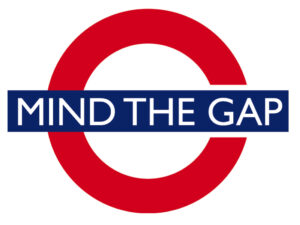Marketing is evolving at lightning speed, fueled by technological advancements, shifting consumer behavior, and new insights from industry leaders. As we stand at the crossroads of tradition and innovation, understanding the state of marketing today is crucial for businesses to stay competitive.
This article unpacks the latest developments, debates, and strategies that define modern marketing, offering actionable insights for marketers looking to thrive in this dynamic landscape.
What Defines the State of Marketing Today?
The marketing industry is undergoing a significant transformation, with fundamental principles being questioned and redefined. Traditional approaches like segmentation and targeting are being revisited, while new tools such as artificial intelligence (AI) are opening up unprecedented opportunities. At the same time, marketers face challenges in balancing creativity with data and long-term strategies with short-term results.
Let’s dive into the key elements shaping the state of marketing today.
The Need for Marketing Expertise
I agree with Mark Ritson that Before anyone is declared an expert/ninja/guru/visionary in marketing they need to learn the discipline. You need a qualification to be qualified.
Maybe it’s just me, but shouldn’t an ‘expert’ in marketing be trained in marketing?
Mark Ritson
Marketing professionals must deepen their understanding of strategy, data, and technology to remain relevant. Bridging the gap between marketing theory and practice is critical. Read more of this brilliant article on the need for marketers to be trained.
This infographic, Marketing Land, remains current, and always will remain current. It is the theory behind anything we do, and whatever platform we choose to use.

Redefining Marketing Principles
The Shift in Core Principles
The Evolution of Segmentation and Targeting
Segmentation and targeting remain essential, but their application is shifting. Experts highlight the rise of sophisticated mass marketing, which emphasizes broad market appeal while leveraging data to tailor messages subtly. This approach balances the reach of mass marketing with the precision of targeted strategies.
The Importance of Distinctive Branding
Byron Sharp’s research at the Ehrenberg-Bass Institute underscores the power of distinctive brand assets—like logos, colors, and slogans—that make brands easy to recognize and recall. In today’s crowded markets, branding must go beyond differentiation to achieve distinction.
Balancing Long-Term and Short-Term Goals
Brand-Building for Longevity
Long-term brand-building strategies, such as storytelling and emotional advertising, play a critical role in creating mental availability. They ensure your brand remains top-of-mind for consumers when they make purchasing decisions.
Performance Marketing for Immediate Gains
Short-term performance marketing, like search ads and promotions, delivers immediate results but can cannibalize long-term brand equity if overused. Balancing these two approaches is key to sustainable growth.
The Role of AI in Marketing Today
AI as a Transformative Force
Artificial intelligence is revolutionizing marketing by automating processes, optimizing strategies, and enabling data-driven decisions. Here’s how AI is shaping the industry:
- Data Analysis: AI quickly processes vast amounts of data to uncover actionable insights.
- Content Creation: Tools like ChatGPT generate high-quality copy, conduct A/B testing, and personalize marketing messages.
- Strategic Planning: AI-driven models predict consumer behavior, recommend pricing strategies, and identify market opportunities.
AI in Action
For instance, AI-powered tools can simulate millions of marketing scenarios, identifying the most effective strategies for reaching target audiences. This capability is transforming how marketers plan campaigns and allocate resources.
The Decline of Creativity in Marketing
Why Creativity Still Matters
While data-driven marketing dominates the industry, creativity remains indispensable. Bold ideas and innovative campaigns capture attention, build emotional connections, and drive loyalty. However, there’s growing concern that excessive reliance on data is stifling creative risk-taking.
Striking the Balance
To thrive in today’s market, brands must combine the precision of data with the human touch of creativity. Great marketing is both an art and a science.
Challenges Facing Marketers Today
Navigating Complexity
Marketers face several hurdles, including:
- Over-reliance on ROI Metrics: Short-term metrics like ROI can limit investment in long-term brand-building.
- Understanding Consumer Behavior: Shifting demographics and preferences make it harder to predict what works.
- Adapting to Technology: Keeping up with the rapid pace of technological change is a constant challenge.







































































